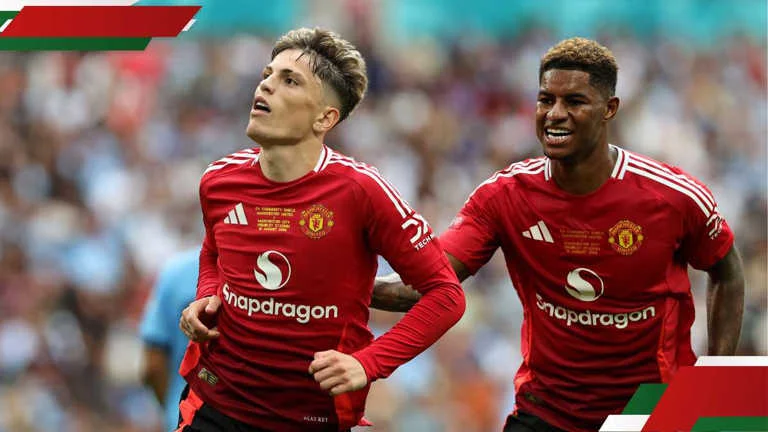Manchester United has placed five players on the market this summer, including high-profile names Marcus Rashford, Jadon Sancho, and Antony. While the move reflects an intent to overhaul the squad and fund fresh signings, the club is encountering significant difficulty offloading these stars—especially the attacking trio that once symbolized its future.
Several key factors are contributing to this transfer impasse, beginning with a notable decline in player performance. Rashford, once hailed as United’s homegrown hero, netted only 5 goals across 32 appearances last season—far from the form that previously made him indispensable. Sancho, signed in 2021 for £73 million, has similarly underperformed, registering just 6 goals in 52 matches. Meanwhile, Antony has shown moments of flair but lacks the consistency required to justify a long-term role in the squad.
Financial expectations are another major hurdle. Manchester United is reportedly seeking a combined £150 million for the trio—an asking price deemed excessive in a market where clubs are increasingly cautious with expenditures. With Financial Fair Play regulations and tighter club budgets, such valuations are difficult to justify for players who are not currently delivering on the pitch.
The club’s broader financial health compounds the problem. Mounting debts and inconsistent revenue growth have placed Manchester United in a delicate fiscal position. The Glazer family's management of the club’s finances has faced consistent scrutiny, and the lack of effective reinvestment in the squad has translated into underwhelming results on the field.
Additionally, the Premier League’s evolving player landscape offers fresh competition. Rising stars such as Erling Haaland, Darwin Núñez, and Gabriel Jesus have already proven their worth at rival clubs, drawing attention away from more expensive, less productive targets. This shift makes it harder for United to justify the premium pricing attached to Rashford, Sancho, and Antony.
The difficulty in finding suitors for these players signals more than just poor form or inflated fees—it highlights a broader structural challenge within Manchester United’s transfer policy. Without a clear recruitment vision or adaptable pricing strategy, the club risks stagnation amid a rapidly advancing football market.

